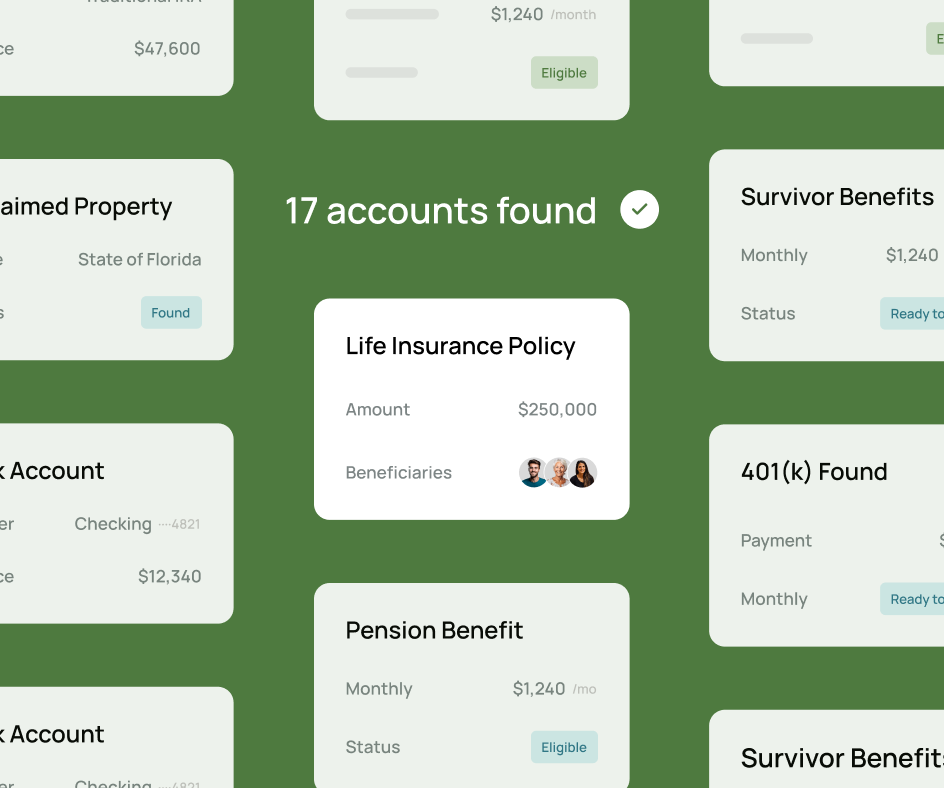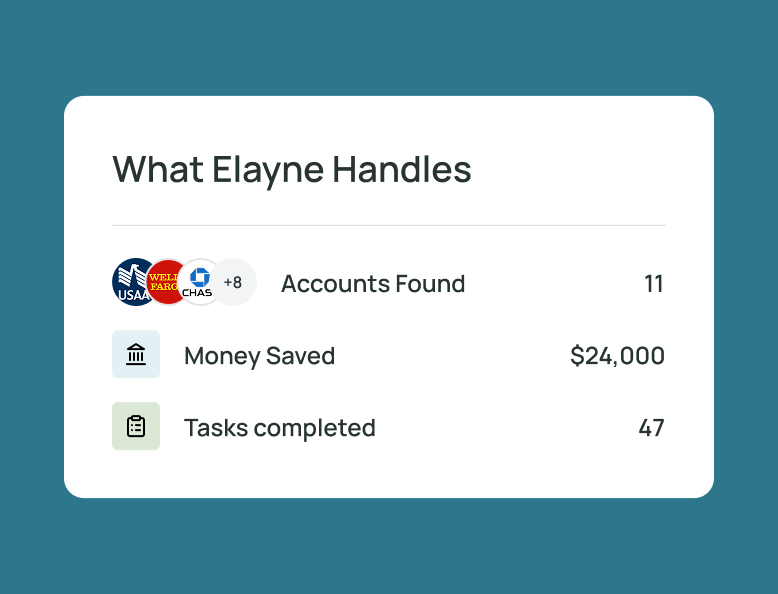Key Takeaways:
- Reporting a death to credit bureaus helps prevent identity theft and financial fraud.
- The process involves sending a death certificate and basic information to each major bureau.
- Executors, spouses, or legal representatives can usually file the report.
{{blog-cta-financial}}
When a loved one passes away, dealing with their financial matters is often one of the last things anyone wants to think about. However, failing to properly report their death can leave their identity vulnerable to fraud. A deceased person’s credit file doesn’t automatically close, and that makes it a target for identity thieves. If you're wondering how to notify credit bureaus of death, this guide will walk you through the process step by step.
Why You Need to Notify Credit Bureaus of Death
Submitting a notice of death to the credit reporting agencies is an essential part of protecting your loved one’s legacy. Here’s why:
- Prevent post-mortem identity theft: Every year, fraudsters open accounts or apply for loans using the identities of deceased individuals. Filing a notification of death stops this.
- Stop junk mail and pre-approved offers: Notifying the credit bureaus helps prevent a flood of unwanted credit offers sent to your loved one’s address.
- Protect their credit report: When the death is reported, the credit file is flagged to prevent further activity, protecting it during estate administration.
Who Can Report a Death to the Credit Bureaus
The following individuals or organizations are usually eligible to file a notice of death:
- Legal representative: An executor, administrator, or estate attorney can report the death to all three credit bureaus.
- Surviving spouse or next of kin: If you’re not the executor but are a direct relative, you may be allowed to file the report, but you’ll need to provide supporting documentation.
- Funeral home: In some cases, funeral homes will submit a basic notification of death as part of their service, although this doesn’t always notify all bureaus.
How to Report a Death to Credit Reporting Agencies
If you’re asking how to report a death to credit reporting agencies, the process involves contacting the three major credit bureaus individually. Here’s a breakdown:
1. Equifax
- Mailing Address:
Equifax Information Services LLC
P.O. Box 105139
Atlanta, GA 30348 - Include the required documents and a letter requesting the account be flagged as "Deceased."
2. Experian
- Mailing Address:
Experian
P.O. Box 4500
Allen, TX 75013 - Or use their online contact form with death notification info.
3. TransUnion
- Mailing Address:TransUnion LLC
P.O. Box 2000
Chester, PA 19016 - Or go to TransUnion’s website and search for their "Deceased Consumer" section.
Sample Cover Letter Language:
Dear [Credit Bureau Name],
I am writing to notify you of the passing of [Full Name], whose Social Security number is [SSN]. I am the [relationship, e.g., executor/spouse], and have enclosed the required documentation. Please mark the credit file as "Deceased–Do Not Issue Credit."
Sincerely,
[Your Name]
[Your Contact Info]
What Documents Are Needed
Before sending your notification of death, gather the following:
- Certified copy of the death certificate
- Your government-issued photo ID
- Legal documentation proving your authority (e.g., Letters Testamentary, Executor Appointment)
- Information about the deceased, including:
- Full legal name
- Date of birth
- Social Security Number
- Last known address
These documents help the bureaus accurately locate and flag the correct credit file.
What Happens After You Submit a Notification of Death
Once you've submitted everything, here’s what to expect:
- Credit file is flagged as “Deceased—Do Not Issue Credit”
- Active accounts may be frozen or closed, depending on estate handling
- New credit cannot be issued in the person’s name
- If someone has already committed fraud, file a credit report identity theft claim with each bureau.
This protects your loved one’s information and simplifies estate settlement.
{{blog-cta-financial}}
FAQs
How do I report a death to the credit bureau online?
Most bureaus require mail-in documentation, but Experian and TransUnion offer limited online options. Always verify through their official websites.
How do you write a letter to notify the credit bureau of death?
Include the deceased’s full name, SSN, your relationship, and a request to mark the file as deceased. Attach supporting documents.
What happens if I don’t report a death to the credit bureaus?
The credit file stays active, leaving your loved one vulnerable to fraud and identity theft.
Can the funeral home notify the credit bureaus?
Sometimes. Funeral homes may submit a basic notice of death, but it’s still a good idea for the legal representative to follow up.
What if someone already opened credit in the deceased’s name?
File a credit report identity theft claim with each bureau and notify the FTC at IdentityTheft.gov.
Learning how to notify credit bureaus of death is a small but critical step in protecting your loved one’s legacy. By taking a few minutes to send a notice of death to each of the major bureaus, you can prevent identity theft, close credit files, and make estate administration smoother.
Need help navigating the entire end-of-life process? Visit Elayne for a complete After-Death Checklist, tools for Automated Estate Settlement, and more practical guides on handling post-death logistics with confidence.
*Disclaimer: This article is for informational purposes only and does not provide legal, medical, financial, or tax advice. Please consult with a licensed professional to address your specific situation.













































